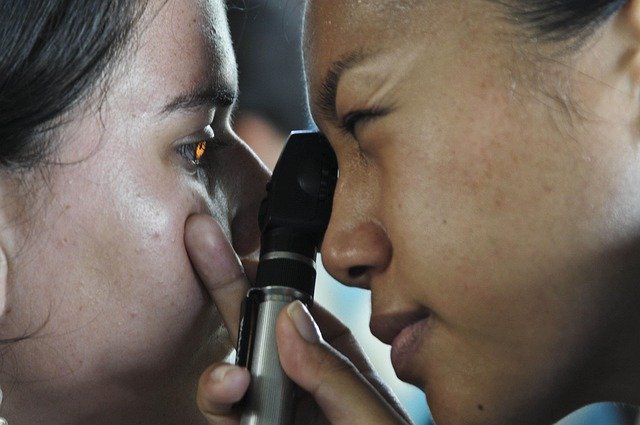Breaking Down Nurse Salaries: How Much Do RNs Really Earn Across the U.S.?
Nurses play a critical role in healthcare, bridging the gap between doctors and patients. They provide essential care, education, and support within medical institutions. One of the most common questions about this integral profession is, "How much do nurses make?" This article breaks down the salary ranges for nurses, focusing on registered nurse pay, and factors influencing their earnings.

Nurses Essential Role in Healthcare
Registered nurses play a pivotal role in our healthcare system, serving as the primary point of contact for patients in most medical settings. They administer medications, coordinate care plans, educate patients about health conditions, and provide emotional support during difficult times. The significance of their responsibilities is reflected in their compensation, though not always proportionately. The nursing profession combines technical medical knowledge, critical thinking skills, and compassionate caregiving—a unique combination that’s increasingly valued in our complex healthcare environment. As healthcare delivery models evolve, nurses have taken on expanded roles in primary care, specialized treatments, and healthcare leadership, further cementing their importance in medical teams across all specialties.
Registered Nurses Salary Breakdown
The national median annual salary for registered nurses stands at approximately $77,600, according to recent data from the Bureau of Labor Statistics. However, this figure represents only the midpoint in a wide range of earnings. Entry-level nurses with less than one year of experience typically earn between $58,000 and $65,000 annually, while those with 5-10 years of experience can expect salaries ranging from $75,000 to $95,000 depending on location and specialty. Nurses with advanced certifications or specialized skills in high-demand areas such as critical care, operating room, or emergency nursing often command premium compensation. Staff nurses employed at hospitals generally earn more than those working in physicians’ offices or long-term care facilities, reflecting the intensity and complexity of acute care environments.
Top-Paying States for Nurses
Geographic location significantly impacts nursing compensation, creating substantial salary variations across states and regions. California leads the nation with the highest average RN salary at approximately $124,000 annually, followed by Hawaii at $106,530 and Oregon at $98,630. Other high-paying states include Alaska, Massachusetts, and New York, all offering average salaries above $90,000. These elevated wages typically correspond to higher costs of living, particularly in metropolitan areas within these states. Conversely, nurses in rural southern states like Alabama, Mississippi, and Arkansas typically earn between $60,000 and $70,000 annually. Urban centers within all states generally offer higher compensation than their rural counterparts, creating significant intrastate salary variations as well.
Factors Affecting Nurse Earnings
Multiple factors beyond geographic location influence nurse compensation. Hospital size and type play significant roles, with large academic medical centers and specialized facilities typically offering higher salaries than small community hospitals. The shift differential represents another important factor, with evening, overnight, and weekend shifts commanding premium pay rates, often 10-20% above base salaries. Travel nursing positions, which have surged in popularity, can offer substantially higher compensation—sometimes 50-100% more than permanent positions—though these come without traditional benefits and job stability. Union representation also impacts earnings, with unionized facilities generally offering higher base pay and more structured advancement opportunities. Additionally, the current nationwide nursing shortage continues to drive up compensation in many regions as facilities compete for qualified staff.
Education and Experience Impact on Salaries
Educational attainment serves as a primary determinant of nursing compensation. While an Associate Degree in Nursing (ADN) represents the minimum requirement for licensure, nurses with Bachelor of Science in Nursing (BSN) degrees earn approximately 10-15% more on average. Master’s-prepared nurses, including Nurse Practitioners and Clinical Nurse Specialists, command significantly higher salaries, often ranging from $100,000 to $150,000 annually depending on specialty and location. Doctorate-level nurses, including those with DNP or PhD credentials, typically occupy the highest compensation tier, particularly in academic, research, or executive leadership positions. Experience similarly correlates with increased earnings, with typical salary increases of 2-5% annually during the first decade of practice. Many healthcare organizations offer clinical ladder programs that provide structured advancement and compensation increases based on experience, additional certifications, and leadership responsibilities.
Nursing Salary Variations by Practice Setting and Specialty
The practice setting and nursing specialty significantly impact earning potential across the profession. Specialty certifications can increase base salary by 5-15% in many healthcare systems. Critical care nurses typically earn more than medical-surgical nurses, while specialized roles in areas like oncology, neonatal intensive care, and operating room settings command premium compensation.
| Nursing Specialty/Setting | Average Annual Salary | Required Certifications |
|---|---|---|
| Medical-Surgical (General) | $70,000 - $85,000 | RN License |
| Emergency Department | $75,000 - $95,000 | RN, CEN preferred |
| Intensive Care Unit | $78,000 - $98,000 | RN, CCRN preferred |
| Operating Room | $80,000 - $100,000 | RN, CNOR preferred |
| Labor & Delivery | $75,000 - $95,000 | RN, RNC-OB preferred |
| Nurse Practitioner | $105,000 - $135,000 | RN, MSN, NP certification |
| Nurse Anesthetist | $165,000 - $200,000 | RN, MSN/DNP, CRNA |
| Travel Nursing | $90,000 - $150,000 | RN, specialty certification |
Prices, rates, or cost estimates mentioned in this article are based on the latest available information but may change over time. Independent research is advised before making financial decisions.
Nursing salaries continue to evolve as healthcare systems adapt to changing patient needs, technological advancements, and economic pressures. While financial compensation represents an important consideration, many nurses cite professional satisfaction, flexible scheduling options, and opportunities for advancement as equally valuable aspects of their career choice. The significant variation in nursing salaries across regions, specialties, and practice settings highlights the importance of researching specific opportunities and considering both immediate compensation and long-term career development when evaluating nursing positions.
This article is for informational purposes only and should not be considered medical advice. Please consult a qualified healthcare professional for personalized guidance and treatment.




